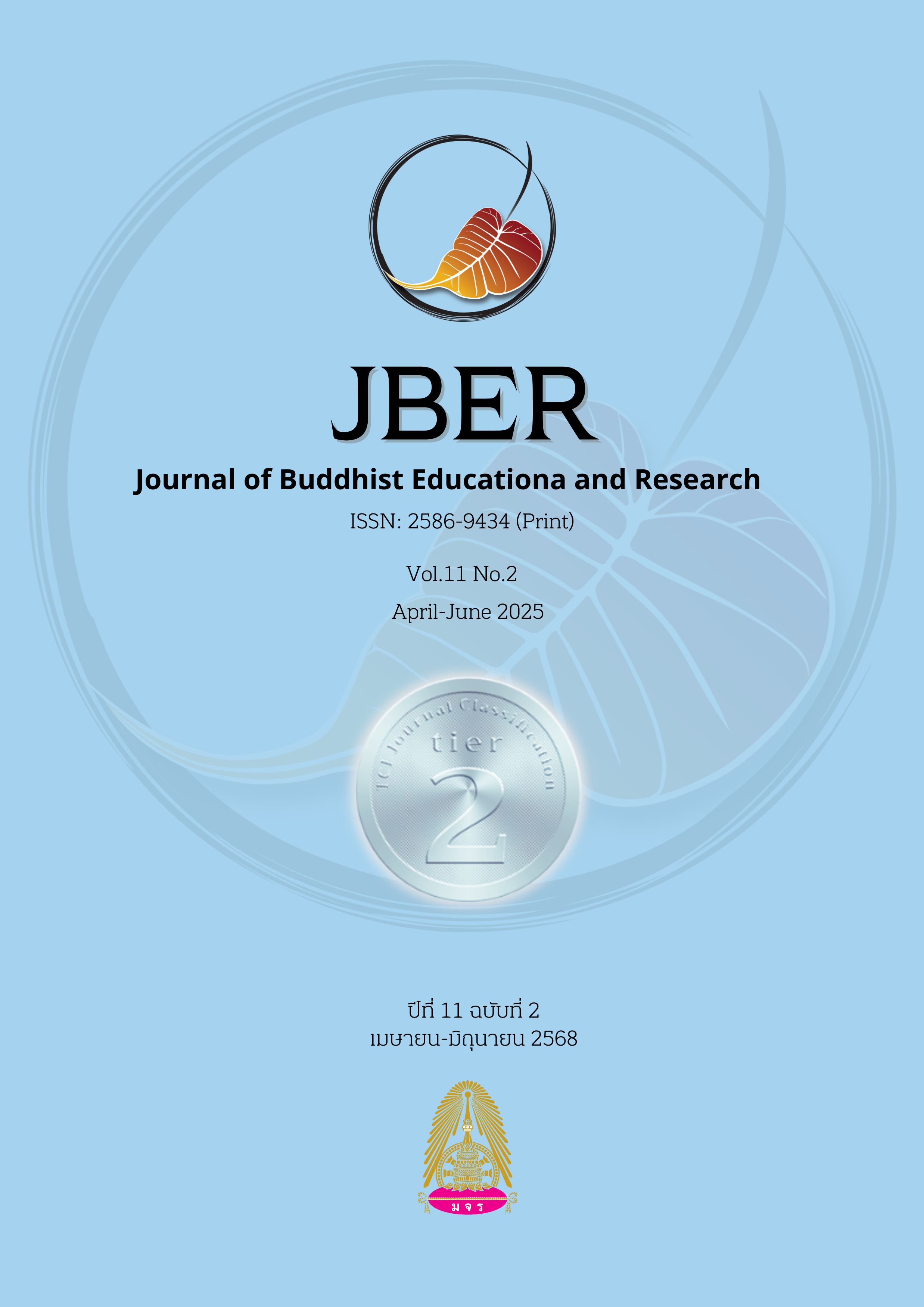Digital Leadership of School Administrators Affects the Performance of Teachers in the New Normal Era, under the Office of the Nakhon Si Thammarat Municipality
Keywords:
Digital Leadership, Educational Effectiveness, Local Government OrganizationsAbstract
This research aimed to study the digital leadership of school administrators, the effectiveness of teachers' performance in the digital age, the impact of digital leadership on teachers' performance, and ways to develop digital leadership for school administrators under the jurisdiction of Nakhon Si Thammarat City Municipality. The sample group consisted of 260 teachers. Data analysis was conducted using percentage, mean, standard deviation, correlation coefficient, multiple regression, and content analysis. The research findings revealed that: 1. The overall digital leadership of school administrators, as well as in individual areas, was at a high level. The area of building digital networks for learning had the highest mean, while the area of creating a digital learning culture had the lowest mean. 2. The overall effectiveness of teachers' performance in the digital age, as well as in individual areas, was at a high level. The ability to develop oneself and the profession had the highest mean, while the ability to manage learning had the lowest mean. 3. The digital leadership of administrators had an impact on the effectiveness of teachers' performance in the digital age. It was found that creating a digital learning culture, building digital networks for learning, and professional digital use significantly affected teachers' performance at the .01 statistical level. 4. The development of digital leadership in school administrators is crucial for promoting teachers' performance in the digital age. This includes supporting infrastructure, appropriately using digital tools, administrators viewing the overall organization, planning and setting goals systematically, promoting staff involvement, and developing digital skills through systematic training and practical activities.
References
ณัฏฐณิชา พรปทุมชัยกิจ. (2564). ภาวะผู้นำยุคดิจิทัลของผู้บริหารสถานศึกษา สังกัดสำนักงานเขตพื้นที่การศึกษามัธยมศึกษา ศรีสะเกษ ยโสธร. วารสารวิชาการมหาวิทยาลัยราชภัฏศรีสะเกษ, 15(2), 50–64.
ธัญชาติ ล้อพงศ์พานิชย์. (2567). ภาวะผู้นำยุคดิจิทัลของผู้บริหารสถานศึกษาที่ส่งผลต่อสมรรถนะด้านเทคโนโลยีสารสนเทศในศตวรรษที่ 21 ของครูโรงเรียนเอกชน จังหวัดอุบลราชธานี. วารสาร มจร อุบลปริทรรศน์, 7(2), 579–592.
บุญชม ศรีสะอาด. (2560). การวิจัยเบื้องต้น (พิมพ์ครั้งที่ 10). กรุงเทพฯ: สุวีริยาสาส์น.
พิมพิลา อำนาจ. (2566). ภาวะผู้นำดิจิทัลของผู้บริหารสถานศึกษาที่ส่งผลต่อประสิทธิผลการบริหารงานวิชาการในโรงเรียน สังกัดสำนักงานเขตพื้นที่การศึกษาประถมศึกษาบึงกาฬ (ปริญญาครุศาสตรมหาบัณฑิต). มหาวิทยาลัยราชภัฏสกลนคร.
ภานุเดช แสงลุน. (2564). แนวทางการพัฒนาภาวะผู้นำด้านดิจิทัลของผู้บริหารสถานศึกษา สังกัดสำนักงานเขตพื้นที่การศึกษาประถมศึกษาขอนแก่น เขต 5. วารสารการบริหารการศึกษาและภาวะผู้นำ มหาวิทยาลัยราชภัฏสกลนคร, 11(41), 175–184.
ฝนทิพย์ หาญชนะ และ คึกฤทธิ์ ศิลาลาย. (2565). ภาวะผู้นำดิจิทัลของผู้บริหารสถานศึกษาตามความคิดเห็นของครู โรงเรียนสหวิทยา เขตชลบุรี 1 สังกัดสำนักงานเขตพื้นที่การศึกษามัธยมศึกษาชลบุรี ระยอง. Journal of Roi Kaensarn Academi, 7(6), 117–133.
รุ่งรัตน์ พลชัย. (2563). ภาวะผู้นำกับการบริหารในยุคดิจิทัล. วารสารมนุษยศาสตร์และสังคมศาสตร์ มมร วิทยาเขตอีสาน, 1(3), 53–62.
สำนักงานเลขาธิการคุรุสภา. (2562). กรอบสมรรถนะครูเอเชียตะวันออกเฉียงใต้ (ซีทีซีเอฟ). กรุงเทพฯ: บริษัทออนป้า จำกัด.
สุชญา โกมลวานิช และคณะ. (2563). องค์ประกอบของภาวะผู้นำดิจิทัลของผู้บริหารสถานศึกษา สังกัดสำนักงานเขตพื้นที่การศึกษามัธยมศึกษาเขต 23. ใน สุรศักดิ์ วงศ์รัตนชีวิน (บ.ก.), การประชุมวิชาการเสนอผลงานวิจัยระดับบัณฑิตศึกษาแห่งชาติ ครั้งที่ 21 (น. 700–708). มหาวิทยาลัยขอนแก่น.
Krejcie, R. V., & Morgan, D. W. (1970). Determining sample size for research activities. Educational and Psychological Measurement, 30(3), 607–610.
Likert, S. (1961). New patterns of management. New York: McGraw-Hill.
Downloads
Published
How to Cite
Issue
Section
Categories
License
Copyright (c) 2025 Journal of Buddhist Education and Research (JBER)

This work is licensed under a Creative Commons Attribution-NonCommercial-NoDerivatives 4.0 International License.





